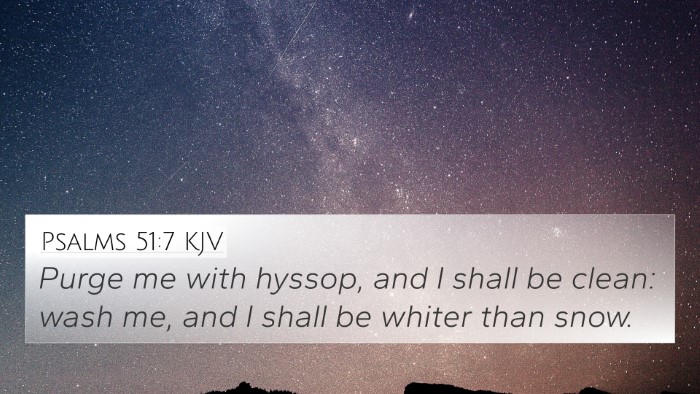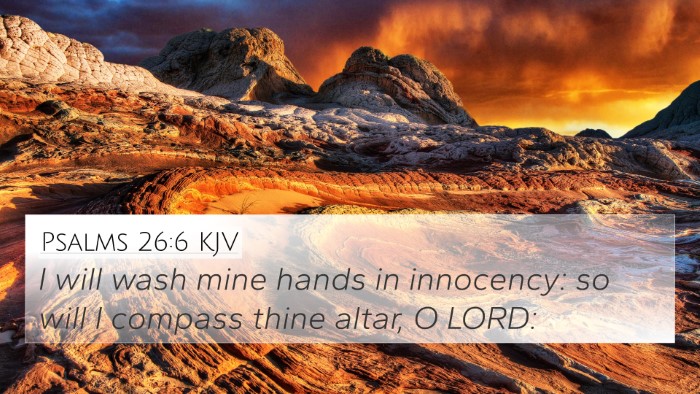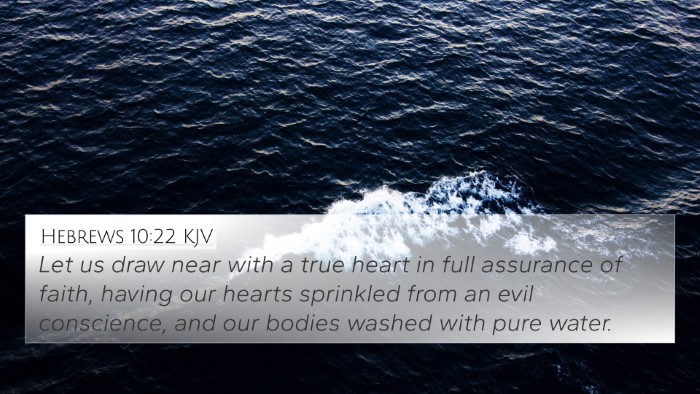Understanding John 13:9
John 13:9 states, "Simon Peter said to him, 'Lord, not my feet only, but also my hands and my head!'" This verse occurs during the Last Supper, where Jesus performs the act of washing His disciples' feet, emphasizing the theme of service and humility.
Verse Context
Contextual Background: This moment is significant because it reveals Jesus’ servant leadership and the importance of purification not just in a physical sense but spiritually as well. Peter’s response illustrates his impetuous nature—he desires not just to have his feet washed but his entire being cleansed, demonstrating an understanding (however misplaced) of the need for complete sanctification.
Commentary Insights
-
Matthew Henry: Henry notes that Peter’s reaction stems from his deep love and respect for Jesus. However, he also highlights that Peter’s misunderstanding of Jesus’ actions illustrates a common human tendency to seek over-commitment to holiness, when sometimes, simple obedience is required.
-
Albert Barnes: Barnes emphasizes the element of humility in Jesus' act of washing feet, indicating that it is not the outward washing that matters, but an inward cleansing. He indicates that Peter’s desire for a deeper washing reflects a universal longing for thorough purification in light of sin.
-
Adam Clarke: Clarke elaborates on the symbolism of washing, defining it as a preparation for the greater communion with God. He also points out that Peter's response is sincere, reflecting a natural human reaction to Jesus’ humble actions.
Bible Verse Cross-References
John 13:9 has thematic connections with several other verses, enhancing our understanding through comparative analysis. Here are some notable cross-references:
- Matthew 20:28: Highlights the servant nature of Jesus, emphasizing that He came to serve, not to be served.
- John 15:3: Jesus speaks of cleansing by His word, paralleling Peter’s desire for complete cleansing.
- 1 John 1:9: Discusses confession and forgiveness, linking to the theme of spiritual cleansing.
- Romans 12:1: Calls for presenting ourselves as living sacrifices, tying into the idea of total devotion.
- Titus 3:5: Speaks of the washing of regeneration, resonating with the concept of spiritual renewal.
- Hebrews 10:22: Encourages us to draw near with a true heart in full assurance of faith, reflecting complete cleansing.
- Revelation 1:5: Affirms that Jesus cleanses us from our sins, culminating the narrative on the necessity of washing for divine communion.
Thematic Connections and Practical Applications
This verse invites us to consider how we approach our spiritual lives:
- Recognizing our need for continual cleansing through faith.
- Understanding the role of humility in serving others, as exemplified by Jesus.
- Reflecting on how our desires for holiness need to be aligned with God’s call for obedience.
- Utilizing tools for Bible cross-referencing to uncover deeper insights into connecting themes throughout scripture.
Inter-Biblical Dialogue
The connections established through John 13:9 facilitate an inter-Biblical dialogue that encourages believers to explore:
- How Old Testament sacrificial laws relate to Christ’s ultimate sacrifice.
- The parallels between the leadership roles established in the Scriptures and fulfilled in Christ’s actions.
- How the attitudes of key figures, such as Peter, serve as templates for our responses to Christ’s teachings.
Conclusion
The act of foot-washing serves not just as a physical act of service but as a spiritual teaching that emphasizes complete humility, the necessity of washing in spiritual terms, and the importance of recognizing one's need for grace. The thematic Bible verse connections derived from John 13:9 encourage further exploration and study, enhancing our spiritual understanding and application.









